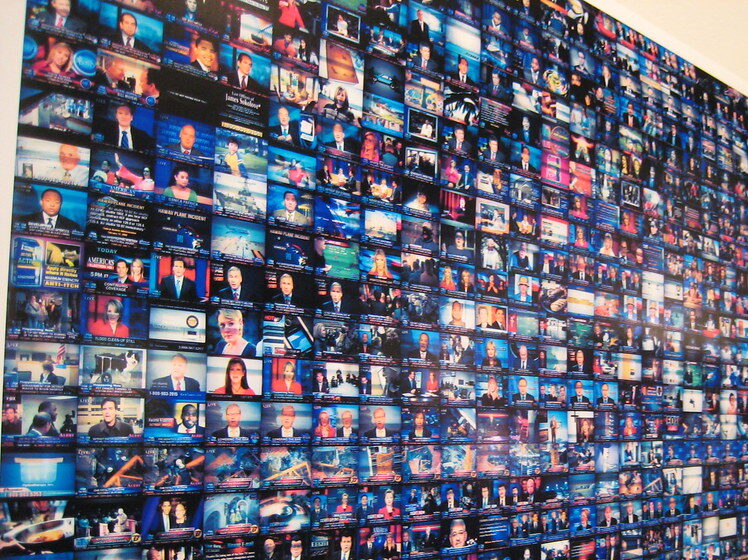Key Takeaways
• ABC suspended Jimmy Kimmel after his comments on the Charlie Kirk shooting.
• Free speech normally limits government, not private employers.
• An FCC threat may have pushed ABC to act.
• Supreme Court rulings ban government coercion of media.
• This case shows how private firms face pressure on speech issues.
Background of the Charlie Kirk Killing
Conservative activist Charlie Kirk was shot and killed recently. People across politics reacted. Former President Barack Obama said, “What happened was a tragedy and … I mourn for him and his family.” Former Vice President Mike Pence added, “I’m heartsick about what happened to him.” These comments showed respect and sorrow.
However, others made more controversial remarks. MSNBC cut ties with commentator Matthew Dowd after he linked hateful thoughts to hateful action. American Airlines grounded pilots accused of celebrating Kirk’s death. Then ABC suspended Jimmy Kimmel indefinitely. They pointed to his comments about the alleged shooter.
Reactions Spark a Free Speech Debate
Many saw Kimmel’s suspension as a First Amendment attack. They argued ABC silenced him under pressure. MSNBC host Chris Hayes called it “the most straightforward attack on free speech from state actors I’ve ever seen.” These defenders believed ABC caved to threats rather than support Kimmel’s right to speak freely.
Yet, free speech normally limits only government actions. Private employers usually face no direct First Amendment limits. So can ABC really violate free speech?
When Free Speech Meets Private Companies
Private firms can set their own rules. They may discipline staff for off-duty comments. Senator Lindsey Graham pointed out, “Free speech doesn’t prevent you from being fired if you’re stupid and have poor judgment.”
For example, in 2020 an investment firm fired Amy Cooper. Video showed her falsely claim a Black bird-watcher threatened her. The firm said it “does not condone racism of any kind.” No government forced that firing. They acted on company policy.
Likewise, ABC fired Roseanne Barr in 2018. She posted a racist tweet about a former Obama aide. Again, no government official told ABC to act. They chose to protect their brand and audience.
Free Speech Limits and the First Amendment
The First Amendment stops government from silencing views it dislikes. It also bans coercion through legal threats or fines. It does not stop a private company from setting speech rules. As one Supreme Court justice said, the right includes both speaking freely and refusing to speak.
Therefore, ABC could suspend Kimmel without breaking the Constitution—unless government pressure forced their hand.
The FCC Threat That Changed Everything
Shortly before Kimmel’s suspension, FCC Chairman Brendan Carr spoke on a podcast. He suggested harsh action. He said the FCC could revoke ABC affiliate licenses over Kimmel’s comments. “We can do this the easy way or the hard way,” he warned.
This remark crossed a line. The government can’t coerce private media to punish unwanted speech. In a 2024 case, National Rifle Association v. Vullo, the Supreme Court said any threat of legal sanction to curb speech is unconstitutional. All nine justices agreed.
By hinting at license revocation, Carr linked ABC’s business interests to Kimmel’s speech. This move likely counts as coercion under the First Amendment. ABC’s decision looks driven by fear of government action, not by its own rules.
What the Law Says About Coercion
The Supreme Court has been clear: government threats meant to punish speech violate free speech protections. If the FCC truly sought to revoke stations’ licenses over Kimmel, ABC and Disney could have sued. They would cite the NRA v. Vullo decision to block any revocations.
Instead, ABC suspended Kimmel without a fight. That choice may have set a worrying precedent. It suggests that private companies can face indirect government pressure on speech. Consequently, employees and media outlets may self-censor.
Why This Case Matters
This situation matters for everyone who cares about open debate. If the government can quietly push private firms to silence voices, free speech loses its bite. Citizens might avoid honest discussion on politics or culture. They could fear hidden threats from regulators.
Moreover, media companies may cut corners to protect licenses or profits. They may impose stricter speech codes. As a result, our public square could shrink. Diverse opinions risk being sidelined.
Instead, we need clear lines. Free speech should protect expression from direct and indirect government coercion. Private companies should make their own fair speech policies. And government officials should respect the First Amendment limits on their power.
FAQs
What is the main rule of free speech in the U.S.?
The First Amendment stops the government from silencing or punishing speech because it disagrees with the message. It also bars coercion through fines or legal threats.
Can private companies enforce speech rules?
Yes. Private employers can discipline or fire employees for speech, even if it happens off duty. The First Amendment does not apply to them directly.
What did the FCC chairman do in this case?
FCC Chairman Brendan Carr suggested on a podcast that the FCC might revoke ABC affiliates’ licenses over Jimmy Kimmel’s comments. This threatened ABC with government action.
Why do some call Kimmel’s suspension a free speech issue?
Because the FCC threat linked government power to ABC’s decision. That coercion may violate the First Amendment’s ban on punishing disfavored speech.
